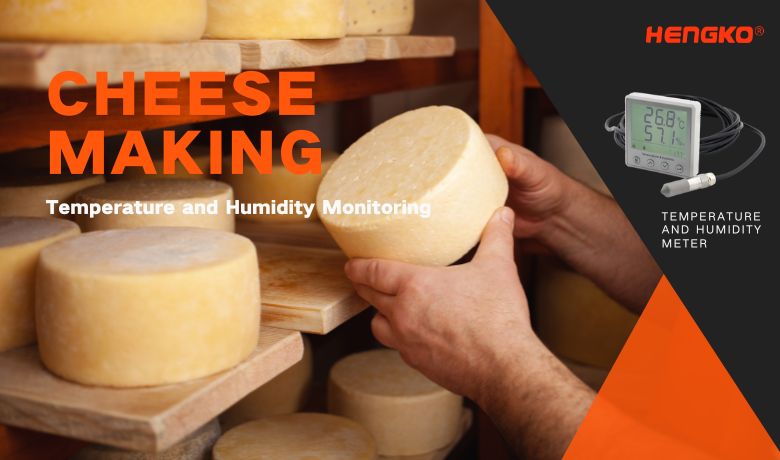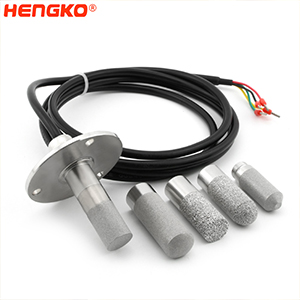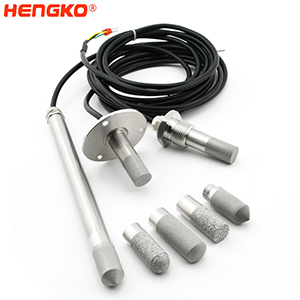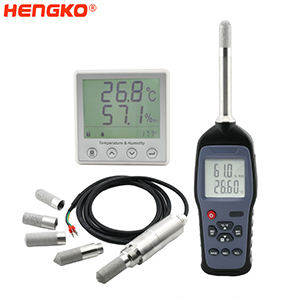
What Need to Care When Making Cheese ?
The cheese making process requires bacterial culture and the use of enzymes and stabilizers. This is a multi-step process. Cheese is stored in a cool and dry place and requires controlled temperature and humidity. Enzymes induce changes in the proteins and fats in cheese to endow characteristic flavor, aroma, texture, etc. Cheese ages for months to years in different climates because it determines the rate of ripening, weight loss, rind formation, surface microbiota development and appearance, taste and texture. Water loss from the surface of hard cheese can cause the cheese to form cracks.
I. Humidity Control:
Precise humidity control is important not only to achieve desired characteristics in terms of taste, texture and appearance, but also to minimize energy costs and maximize profits. If cheese is excessively dry, energy consumption increases and production decreases, profits will be reduced.
2. Storage Time and Conditions Vary by Cheese Type:
① Cheddar cheese:temperature 4-8°C, RH% < 80%, maturation time 2-24 months.
② Emmental: temperature 8-12°C, relative humidity 85-90%, ripening for 3-4 weeks, then increase the temperature to 22-25°C for 6-7 weeks, maintain the same humidity level, and then drop the temperature to 8-12°C for a few more months.
③ Brie and Camembert: temperature 12-15°C, RH% 90-94%, maturation time 9-30.
④Sky blue cheese:temperature 8-12° C, RH% 85-95%, ripening time of weeks to months.

Historically, caves have been used as ideal environments for aging and storing cheese, and are still in use today, but most storage areas are now man-made structures that use sensors for climate control, including well-ventilated shelves, humidifiers, and temperature and humidity sensors and control systems.
Shelving for food (cheese) aging uses a polypropylene stackable mesh that can be used for ripening, curing and drying cheese for optimal ventilation and product support. Steam or adiabatic humidifiers can be used, the latter uses a variety of techniques to introduce water into the air, causing an increase in relative humidity (RH) levels and a decrease in air temperature (dry bulb) by dispersing water droplets or allowing water to evaporate from a moist medium. This ultimately saves energy usage and costs.
3. The Process of Maintaining Mature Indoor Humidity Level
The air in the room is often refreshed with air from outside. Usually warmer air will become saturated and cause condensation as the cooler air in the room holds less moisture than the incoming air. To avoid this, the relative humidity in the room must be measured, and the incoming air must be controlled and dehumidified. Note that dehumidifiers usually include built-in humidity sensors.
4. Humidity Measurement Challenges
High humidity and potentially condensing environments are difficult measurement tasks in the presence of ammonia, which will interact with humidity sensors and may cause sensor drift. Water needs to flow in and out of the sensor, which means other gases can also block the active surface.
5. Humidity Measurement Solutions
Humidity sensors may struggle with violently high humidity, and even the best capacitive sensors can only achieve accuracy of around +/ -2.0% above 90% RH. If you are concerned about accuracy, and find that your measurements drift or need to change sensors frequently, then it may be time to consider using resistive sensors.
Taking the wall-mounted industrial temperature and humidity sensor HT802C as an example, the operating temperature and humidity of the sensor circuit are -20℃~80℃ and 0%RH~100%RH, respectively. The operating temperature and humidity of the probe are -40 ℃~+125℃ and 0% RH-100% RH, respectively which can meet the needs of high humidity environment measurement.
Since 2008, HENGKO has passed ISO9001 quality system certification, FDA, CE, FCC, ROSH, IP protection and other international standards certification. HENGKO provides temperature and humidity customization services, including hand-held temperature and humidity calibration meter, wireless temperature and humidity recorder, dew point transmitter, dew point sensor, temperature and humidity transmitter, temperature and humidity sensor, temperature and humidity probe, temperature and humidity sensor housing and other products and services. If necessary, please contact us!
Post time: Oct-24-2022









